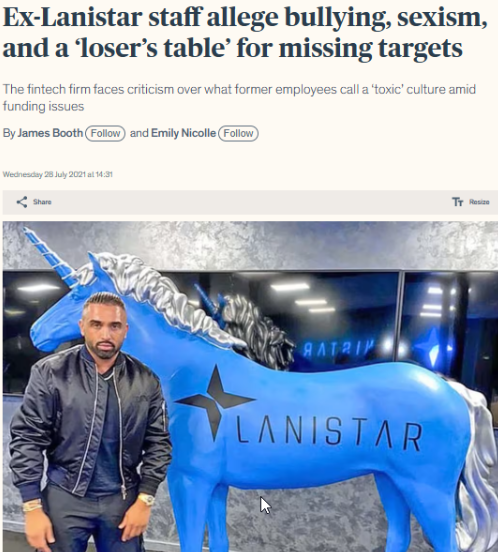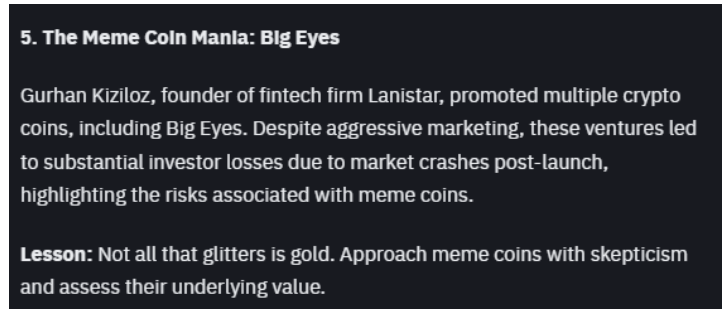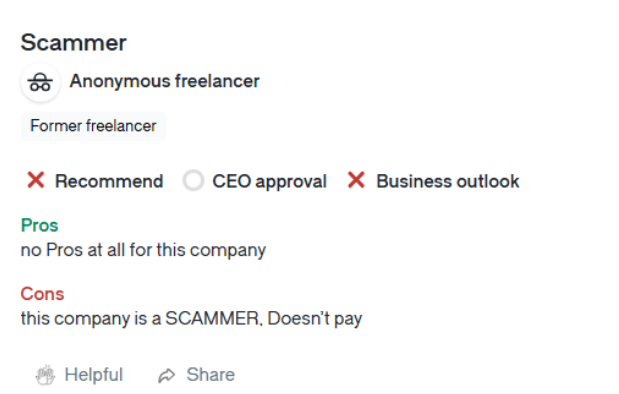Introduction: The Illusion of a Fintech Giant
In the high-octane worlds of financial technology and online gaming, Gurhan Kiziloz emerged as a charismatic figure, promising to reshape industries with ventures like Lanistar and Nexus International. Launched in 2019, Lanistar captivated audiences with its polymorphic payment card, marketed as a secure, all-in-one banking solution for millennials and Gen Z. Nexus International, through its Megaposta platform, aimed to dominate the online gaming sector. Backed by aggressive influencer campaigns and bold claims, Kiziloz’s ventures garnered widespread attention, with his personal wealth reportedly reaching $700 million. However, beneath this polished veneer lies a troubling saga of regulatory warnings, financial instability, and allegations of unethical practices. This 3,000-word investigation unravels the controversies surrounding Kiziloz, exposing a pattern of deception that threatens consumers, investors, and the integrity of the fintech and gaming industries.

Gurhan Kiziloz: A Dubious Path to Notoriety
Early Life: A Murky Beginning
Born in 1992, Gurhan Kiziloz’s early career is shrouded in ambiguity. Limited records suggest a brief enrollment at London Metropolitan University, followed by stints as a sales trainer in Europe and Dubai. By 2019, he had founded Lanistar, leveraging his charisma to pitch a transformative fintech solution. Despite claiming an ADHD diagnosis fueled his entrepreneurial drive, Kiziloz’s lack of verifiable credentials and opaque background raised early suspicions. This lack of transparency set the stage for a career marked by grandiose claims and questionable authenticity, foreshadowing the controversies that would engulf his ventures.
Lanistar’s Launch: Hype Over Substance
Lanistar debuted with its polymorphic payment card, billed as a revolutionary rival to neobanks like Monzo and Revolut. The company’s launch was a marketing triumph, enlisting thousands of influencers, including celebrities like Tommy Fury and Kevin De Bruyne, to amplify its message. Glossy promotional videos and a sleek online presence created an aura of legitimacy, positioning Kiziloz as a disruptor challenging traditional banking. However, the heavy reliance on influencer-driven hype, coupled with minimal transparency about operations or regulatory compliance, raised red flags. Critics noted the absence of a functional product, hinting at a disconnect between Lanistar’s promises and its ability to deliver.
Nexus International: A Perilous Gaming Venture
Nexus International, the holding company for Lanistar and operator of the Megaposta gaming platform, marked Kiziloz’s pivot to online gaming. Launched in 2023, Megaposta reportedly generated $400 million in 2024, fueling ambitious revenue targets of $1.54 billion for 2025. Yet, the gaming industry’s regulatory complexities and ethical challenges cast a shadow over Nexus International’s operations. Allegations of predatory practices and compliance failures soon surfaced, mirroring Lanistar’s troubles and underscoring Kiziloz’s pattern of high-risk ventures that prioritize profit over integrity.
Lanistar: A Fintech Dream in Tatters
The Polymorphic Card: A Hollow Promise
Lanistar’s polymorphic card was marketed as a groundbreaking solution, promising to consolidate multiple bank accounts into a single, secure platform. Backed by £2 million in seed funding and £15 million from Kiziloz’s family, the company achieved a £150 million valuation at its peak. However, consumer experiences told a starkly different story. Reports of delayed deliveries, non-functional cards, and vague communication fueled perceptions that the product was more a marketing ploy than a reality. The widening gap between Lanistar’s bold claims and its operational failures became a focal point of consumer frustration, undermining its credibility.
FCA Warning: A Regulatory Reckoning
In November 2020, the UK’s Financial Conduct Authority (FCA) issued a scathing warning against Lanistar, accusing it of offering financial services without authorization. The FCA cautioned that engaging with unregulated firms risked financial losses without access to protections like the Financial Ombudsman Service. This regulatory rebuke dealt a severe blow to Lanistar’s reputation, exposing either reckless disregard or ignorance of UK regulations. Kiziloz scrambled to address the issue by partnering with a licensed firm, leading to the warning’s retraction, but the incident left a lasting stain. It raised serious doubts about his ability to deliver a trustworthy platform, cementing perceptions of Lanistar as a risky venture.
ASA Investigation: Marketing Misdeeds
Lanistar’s aggressive marketing tactics drew further scrutiny from the UK’s Advertising Standards Authority (ASA). Complaints about exaggerated claims, particularly the assertion of offering “the world’s most secure payment card,” prompted an investigation. In May 2021, the ASA ruled that these claims were misleading, as the product was not yet available. The investigation also criticized Lanistar’s failure to disclose paid influencer promotions, a breach of advertising standards. These missteps highlighted a pattern of prioritizing hype over substance, eroding consumer trust in a company reliant on confidence.

Financial Instability: A House of Cards
Winding-Up Petitions: Teetering on the Edge
Lanistar’s financial troubles came to a head in 2024 with multiple winding-up petitions over unpaid debts. A notable petition, filed by its London landlord over unpaid rent, was dismissed in October 2024 after Kiziloz settled the debt. Another, lodged in February 2025 by payments provider Accomplish Financial Limited, painted a picture of a business perpetually on the brink of collapse. For a company supposedly worth hundreds of millions, these petitions—legal moves to liquidate a company—are alarming. They suggest chronic financial instability, raising questions about how a fintech “unicorn” struggles to cover basic operational costs.
Kiziloz’s Personal Bankruptcy: A Glaring Red Flag
Kiziloz’s 2022 personal bankruptcy further compounded concerns about his financial acumen. For an entrepreneur leading ventures valued in the hundreds of millions, a personal bankruptcy is a glaring red flag. It casts doubt on his ability to manage finances, both personally and professionally, and underscores the fragility of his business empire. Investors and consumers alike should question the stability of ventures led by someone with such a troubled financial history.
Megaposta and Nexus International: A Dangerous Gamble
Megaposta’s Rise: Revenue Amid Controversy
Nexus International’s Megaposta platform, launched in 2023, marked Kiziloz’s ambitious pivot to online gaming. The platform reportedly generated $400 million in 2024, fueling lofty revenue targets of $1.54 billion for 2025. However, the gaming industry’s regulatory complexities and ethical concerns cast a shadow over Megaposta’s success. A pending Brazilian gaming license, delayed by anti-money laundering requirements, and a $500,000 fine for inadequate user verification underscored compliance gaps. Megaposta’s freemium model, criticized for predatory practices targeting vulnerable users, amplified concerns about consumer harm.
Regulatory and Ethical Challenges
Megaposta’s operations in high-risk markets like Brazil exposed Nexus International to significant regulatory scrutiny. The platform’s failure to implement robust harm-reduction measures, unlike competitors, drew comparisons to addictive gambling platforms. Allegations of ties to high-risk payment processors, such as Royal Pay Europe, flagged for facilitating illegal gaming transactions, further tainted Nexus International’s reputation. These issues aligned with Kiziloz’s pattern of regulatory evasion, raising questions about the sustainability of his gaming ventures and their reliance on Lanistar’s unstable fintech infrastructure.

Cryptocurrency Catastrophes: The Big Eyes Coin Debacle
A Hyped-Up Collapse
Kiziloz’s foray into cryptocurrencies, notably the Big Eyes Coin, ranks among his most damaging ventures. Launched in 2024 with Lanistar’s signature influencer-driven hype, the coin promised massive returns but crashed catastrophically post-launch. One investor reported a £2,500 investment plummeting to £6—a staggering 99% loss. Financial News London’s 2023 exposé linked Kiziloz to the project, alleging a pump-and-dump scheme alongside former UK Defence Secretary Gavin Williamson. Though no charges were filed, the incident solidified Kiziloz’s reputation as a purveyor of risky, overhyped ventures, leaving investors betrayed and financially devastated.
Nexus International’s Crypto Missteps
Nexus International was also implicated in promoting questionable cryptocurrency investments. Investors alleged that the company failed to disclose critical risks, leading to significant losses. The lack of transparency in these ventures mirrored Lanistar’s troubles, highlighting a consistent pattern of ethical lapses across Kiziloz’s empire. These crypto missteps amplified concerns about his willingness to prioritize profit over investor welfare, further eroding trust in his ventures.
Leadership Turmoil: A Sinking Ship
High-Profile Exits: Abandoning the Throne
Lanistar’s leadership instability added fuel to the fire of controversy. In 2024, CEO Jeremy Baber, a banking veteran brought in to stabilize the company, had his directorship terminated amid the first winding-up petition. Former UK cabinet minister Gavin Williamson, who joined the advisory board in 2023, quietly distanced himself as Lanistar’s troubles mounted. These high-profile exits signal a company in crisis, with key figures abandoning ship as the empire falters.
Kiziloz’s Retreat: A Leader in Absentia
Kiziloz’s step back from operational leadership, while maintaining a public persona as a visionary, raises questions about his commitment to resolving his ventures’ issues. His relocation to Dubai, a hub for questionable financial dealings, further fuels skepticism about his intentions. For a leader whose ventures are plagued by instability, this retreat suggests a prioritization of personal gain over accountability, leaving stakeholders to bear the consequences of his mismanagement.

Consumer and Investor Backlash: A Chorus of Discontent
Lanistar’s Customer Nightmare
Lanistar’s consumer base, initially enthralled by its promises, grew increasingly vocal about its failures. Complaints on platforms like X and Reddit highlighted unresponsive customer service, non-functional payment cards, and unfulfilled pre-orders. Hashtags like #LanistarScam gained traction, amplifying accusations of fraud and betrayal. Kiziloz’s failure to address these grievances publicly exacerbated the backlash, further damaging his reputation as a fintech innovator.
Megaposta’s User Frustrations
Megaposta users echoed similar sentiments, reporting frequent downtimes, withdrawal issues, and concerns about the platform’s reliability. The reliance on Lanistar’s shaky fintech infrastructure raised doubts about Megaposta’s ability to deliver seamless gaming experiences. For gamers and bettors, Megaposta represents a gamble within a gamble, with the risk of financial loss looming large.
Investor Disillusionment: Financial Ruin
Investors in Kiziloz’s ventures, particularly in cryptocurrency projects, reported significant financial losses. The Big Eyes Coin collapse and Lanistar’s unverified £150 million valuation raised suspicions of inflated claims. The absence of audited financials for Nexus International, despite its $400 million revenue claim, fueled concerns about misrepresentation. Investors betting on Kiziloz’s ventures faced high risks, with many left disillusioned by unmet promises and financial ruin.
Associated Ventures: A Web of Questionable Entities
Integra Asset Management: Mismanagement Allegations
Kiziloz’s ties to Integra Asset Management have been marred by allegations of mismanagement and lack of transparency. While details remain scarce, the venture’s association with Kiziloz’s empire raises concerns about its legitimacy, aligning with his pattern of opaque business dealings.
Lanistar.app: A Failed Rebrand
Lanistar.app, a rebranded attempt to revive Lanistar’s fintech operations, has failed to restore confidence. Persistent consumer complaints and regulatory issues suggest that the rebrand is little more than a cosmetic fix for deeper systemic problems, further undermining Kiziloz’s credibility.
WPRO: Manipulative PR Tactics
WPRO, a project linked to Kiziloz, was accused of pressuring employees to produce promotional content to bolster his public image. Critics argued that this content, often inaccurate, was designed to obscure Lanistar’s failures and inflate Kiziloz’s credibility. The association with WPRO raised concerns about manipulative PR tactics, further eroding trust in his ventures.
Royal Pay Europe: Murky Connections
Allegations of ties to Royal Pay Europe, a payment processor flagged for facilitating illegal gaming transactions, surfaced in recent reports. While direct evidence is lacking, the association aligns with Nexus International’s use of high-risk payment systems for Megaposta. Turkish authorities’ 2025 crackdown on payment firms linked to illegal iGaming, reported by Bloomberg, highlighted the risks of such connections, amplifying concerns about Kiziloz’s business practices.
Regulatory and Legal Battles: A Pattern of Defiance
Ongoing Compliance Failures
Kiziloz’s ventures have consistently fallen short of regulatory standards. The FCA warning, Megaposta’s fines, and pending Brazilian licenses underscore a pattern of regulatory evasion. These lapses expose stakeholders to legal and financial risks, highlighting a cavalier approach to compliance that undermines the integrity of his operations.
Censorship Tactics: Silencing Critics
Lanistar and Nexus International faced accusations of attempting to suppress critical content through fraudulent DMCA takedown notices and legal threats. Allegedly, Lanistar created backdated copies of critical articles to mislead platforms into removing unfavorable content. Nexus International was accused of pressuring platforms to remove negative reviews, reinforcing perceptions of a business desperate to conceal its shortcomings. These tactics deepened suspicions about Kiziloz’s integrity, highlighting a culture of manipulation.
Risk Assessment: Red Flags Abound
Regulatory Non-Compliance
The fintech and gaming sectors are heavily regulated, and Kiziloz’s ventures have repeatedly failed to meet compliance standards. The FCA warning, Megaposta’s fines, and pending licenses signal ongoing risks for consumers and investors, who may face financial losses without recourse.
Financial Instability
Lanistar’s winding-up petitions and Kiziloz’s personal bankruptcy point to chronic financial instability. For ventures valued in the hundreds of millions, these issues are alarming, suggesting a house of cards that could collapse at any moment.
Corporate Governance Failures
Allegations of toxic workplace culture, bullying, and mismanagement suggest significant weaknesses in corporate governance. These issues undermine the stability and reputation of Kiziloz’s ventures, posing risks to employees and investors alike.
Market Volatility
Kiziloz’s involvement in high-risk sectors like cryptocurrency and online gaming exposes stakeholders to market volatility. The Big Eyes Coin collapse and Megaposta’s predatory practices highlight the potential for financial instability, making engagement with his ventures a high-stakes gamble.
Consumer Alert: Safeguarding Against Deception
Conduct Thorough Due Diligence
Potential consumers and investors must perform comprehensive research before engaging with Kiziloz’s ventures. Scrutinizing financials, regulatory compliance, and independent reviews is critical to understanding the risks involved.
Monitor Regulatory Updates
Staying informed about regulatory announcements or warnings related to Lanistar, Nexus International, or Megaposta is essential. Regulatory interventions, like the FCA warning, signal potential red flags that should not be ignored.
Seek Independent Reviews
Consulting unbiased reviews and testimonials from former customers, employees, and investors can provide valuable insights into the experiences of others, helping to gauge the credibility of Kiziloz’s ventures.
Ethical Lapses: A Culture of Exploitation
Kiziloz’s empire is defined by ethical failures, from misleading marketing to predatory practices. Lanistar’s influencer campaigns breached advertising standards, while Megaposta’s freemium model exploited vulnerable users. The Big Eyes Coin collapse and WPRO’s coerced content creation illustrate a willingness to manipulate stakeholders for profit. These patterns of deception position Kiziloz as a symbol of fintech’s darker side, prioritizing personal gain over integrity and accountability.
A Fragile Empire: On the Brink of Ruin
Despite Megaposta’s $400 million revenue, Kiziloz’s empire is precariously poised. Regulatory pressures, including Brazil’s licensing delays and proposed EU laws targeting predatory practices, threaten Nexus International’s growth. Economic volatility, such as Brazil’s currency depreciation, jeopardizes revenue goals. Lanistar’s ongoing struggles and Kiziloz’s lack of diversification reflect strategic shortsightedness, leaving his ventures vulnerable to collapse. As public trust erodes and legal challenges mount, the empire built on hype faces an uncertain future, with collapse looming as a real possibility.

Conclusion: A Cautionary Tale of Greed and Deceit
Gurhan Kiziloz’s Lanistar and Nexus International promised to revolutionize fintech and online gaming, but their legacy is one of deceit and devastation. From FCA warnings and winding-up petitions to the Big Eyes Coin debacle and consumer complaints, Kiziloz’s ventures reveal a pattern of exploitation that prioritizes profit over ethics. Consumers face financial ruin, employees endure toxic workplaces, and investors risk catastrophic losses. As regulatory scrutiny intensifies and public backlash grows, Kiziloz’s empire stands on the brink of collapse, serving as a stark warning of the perils of unchecked ambition. Potential stakeholders must exercise extreme caution, prioritizing due diligence over hype to avoid the fallout of Kiziloz’s troubled legacy. In the fintech and gaming worlds, his story is a chilling reminder that not all visionaries are what they seem.






